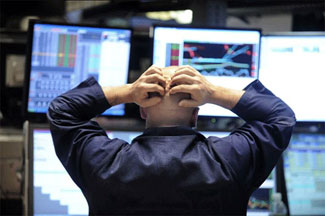Collective solutions to address economic crisis vital - UNCTAD
The continuing fallout from the global financial and economic crises
requires collective solutions and innovative thinking and UNCTAD will
engage pragmatically with member States to achieve this goal, the
organisation's new Secretary-General said.
Secretary-General Mukhisa Kituyi was speaking at the opening of the
60th session of the organisation's Trade and Development Board (TDB),
the body that guides UNCTAD's work from year to year.
 Dr. Kituyi, a national of Kenya who considers himself 'passionate'
about development, has extensive experience international affairs and
became the organisation's seventh Secretary-General on September 1. He
described a more prominent mission for the organisation, which he said
is designed to meet such a challenge "and can be a powerful tool. And
such a tool is badly needed in the current, turbulent times." Dr. Kituyi, a national of Kenya who considers himself 'passionate'
about development, has extensive experience international affairs and
became the organisation's seventh Secretary-General on September 1. He
described a more prominent mission for the organisation, which he said
is designed to meet such a challenge "and can be a powerful tool. And
such a tool is badly needed in the current, turbulent times."
Minister of Culture, Arts, and Heritage of Qatar and President of the
UNCTAD XIII quadrennial conference held in Doha in 2012, Hamad bin
Abdulaziz Al-Kawari said that the next few years will provide an unique
opportunity to "fundamentally redesign" the global approach to
development.
"We need to make commitments, take action, and provide resources" to
"ensure that the global development system delivers on its promises," he
said.
Ambassador and Permanent Representative of Indonesia to the United
Nations, World Trade Organisation and other international organisations
at Geneva, Triyono Wibowo was elected President of the TDB. He told the
session that UNCTAD is embarking "on a particularly important period."
It is a time, he said, "to reflect on how our conference will relate to
the broader global discourse on development."
Secretary-General Kituyi said that UNCTAD will actively participate
in shaping international approaches to economic growth at a time when
the world "is still far from recovery" and when major changes can be
seen in the economic landscape. He said UNCTAD is well-positioned to be
part of an inclusive dialogue about development, and to play an
effective role in policy debates, given its highly qualified and
experienced economists and development-policy experts, its heritage of
development research and innovative thinking, its extensive cooperation
with civil society, and the convening power of the United Nations.
Among the important elements of the current global situation, Dr.
Kituyi highlighted "the emergence of the global South," as shown by an
increase in the share of developing countries in world output over the
past two decades from 18 to 34 percent. Last year, he said, for the
first time, foreign investment flows to developing countries exceeded
flows to developed nations.
"This shift in the balance of the world economy will affect everyone
- developed economies, emerging economies, and those countries that
remain marginalised," he said.
He said UNCTAD will aim to have direct beneficial impact "on the
ground" for developing-country economies. The organisation will be
pragmatic, will make its voice heard more prominently in the
international arena, and will engage many stakeholders, he said.
He also called for much deeper engagement with member States. "I will
need you," he said. "Your active engagement in UNCTAD. As its principal
stakeholders, you own UNCTAD."
Serious thinking - such as that carried out by UNCTAD over the years
as it has researched development issues and has hatched innovative
approaches - will be critical as new and effective ideas are sought for
economic progress, Dr. Kituyi told the TDB.
He said that he will "claim UNCTAD's rightful seat at the table where
the agenda and architecture of sustainable development goals beyond 2015
will be managed." |

